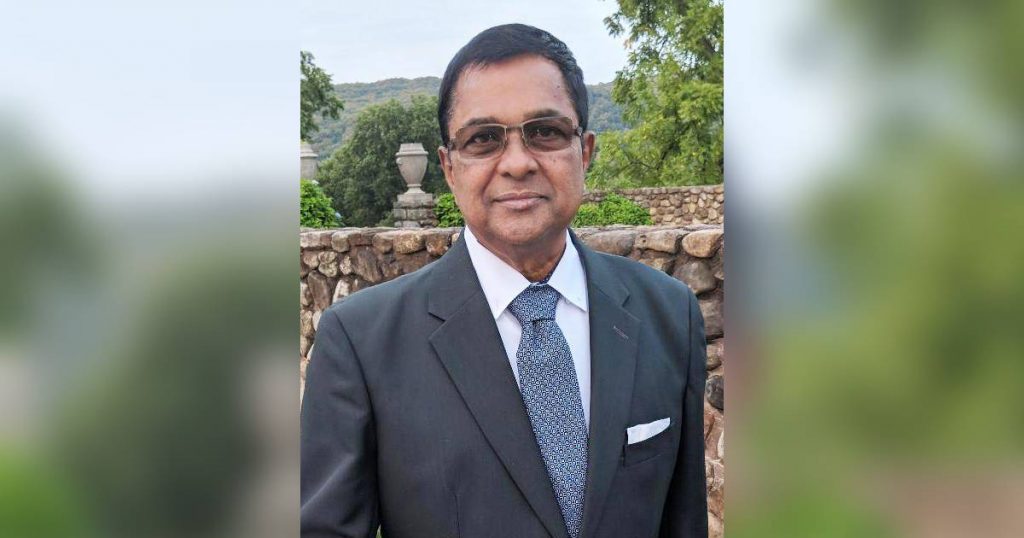Amidst the thrilling crimes and murders, human invasions in Trinidad and Tobago, there must be a new series of initiatives aimed principally to curb them once and for all.
And as the Indian diaspora marking its 179th anniversary since the first batch of East Indians in the Fatel Razack burst through the Gulf of Paria on May 30, 1845 with a cadre of 230 laborers to give them, new hope, new opportunity, as settled on Trinidad and Tobago soil, then a colonial country much more needed to be done to offer continued solace, peace, order, respect for the full determination of the indentured persons. And between 1845 and 1920, in excess of 150.000 came to alleviate agricultural decay and suffering of the population
This must be done amidst the thrilling specter of home invasions, murders and other crimes which continue to haunt the national populace, more so the Indian diaspora. There must be a serious regeneration in this total society to avoid further decay of our survival as we know it.
Who would have that in the third decade of the 21st century, the world would ruin itself with war between Israel and Hamas, Ukraine and Russia, among several areas in the globe. The Indian diaspora remains in a celebratory mood, notwithstanding the opera of uncertainties we all face, as a nation, and as a people
We must move away the traditional floats, and parades. And instead forge a new forum to regenerate new thoughts, new aspirations and advance to a total world view clouded by the wisdom and knowledge we have inherited, and forcibly place on the national, and international agenda in the network of multilateral agencies. The Indian diaspora must avoid too much of talking, and replace it with profound actions worthy to be emulated in the governance of the nations of the world.
In marking the 179h anniversary of Indian Arrival Day in 2023, I sought to enlighten the nationals, the Indian diaspora must seek endure and another motivation to spark a political and psychological platform for the incoming generation. There have been several MOUs signed by both governments, India and Trinidad and Tobago, and may I ask how many of the points of agreement have been practical and in the interest of both nations. And except for religious and tourism forays, and several Indian-established business entities, there is not much, if any, to count.
This is what our leadership must work towards. The Mahatma Gandhi Centre for Cultural Co-operation after some 52 warring years, came into fruition in 2020, and has been doing a worthy job in terms of culture and religion, and there has been a new Indian High Commissioner, Dr Pradeep Rajpurohit who sounded and seems to be seriously focus on reinventing well-thought out assignments to even knit both countries even closer in terms of dusting the several MOUs stuck in the shelves in both countries, and ensuring that these documents see the light of the day with action. The Centre is led by Mrs. Ajay, and there is no doubt that she would engage the national citizenry to foster the rich cultural strength of the Indian people, which was sourced many centuries ago.
Trinidad and Tobago’s Prime Minister Dr Keith Rowley has just returned for Ghana and India, and has signed an agreement with the Indian Alliance organization to assist tremendously in the establishment of a cricket academy at Trincity, and let us see how it would pan out.
A notable personality would be missed this year is Professor Emeritus, Dr Brinsley Samaroo who in his 50 years or so, researching the Indian diaspora in Fiji, Mauritius, India, Suriname, Guyana, United Kingdom, and of course Trinidad and Tobago, and other parts of the Caribbean. He gave the Indian diaspora a new meaning and a new ethos. He would surely be missed as an integral figure in the whole Indian diaspora process.
And to mark his death last July, a recent publication entitled, “From Villager to International Schola—The Life of A Legend”, several of his associates paid tribute to him for the meaningful and academic work he did in pursuance of the Indian diaspora worldwide. Dr Samaroo put Trinidad and Tobago on the international map in terms of diaspora issues.
Foremost is former Minister Winston Dookeran, both of Rio Claro who shared the dormitory with him at Naparima College, San Fernando. Dookeran echoed that for him, as an historian, “every creed and race have an equal place” is a historical fact. Clifford Narinesingh, of Royads Publishing, noted that, “Brinsley was meticulous and fastidious in his practice. His concern with vigorous methodology … it was also an expression of his social responsibility”. And so, the Indian diaspora here must strive to overturn the social, economic and cultural block, and therefore give us the opportunity to do so, which we richly deserve.
The Indian diaspora must continue to etch its mark as a serious, prolific segment of the populace, thus respecting the other segments of the country. It has to make a statement boldly, affirmatively and respectfully today, aimed at avoiding the pitfalls we might make. We have the leadership, to mount this assignment and challenge we might endure or face. It must be an academic and philosophical task now, and let us not be fooled just by floats and river boats.
We have past that stage.
Parasram (Paras) Ramoutar. HBM. JP. BA
Journalist/Consultant
61 Main Road, Caparo. Trinidad.
H:(868)672.8702/C;(868)374.5586
Email: paras_ramoutar@yahoo.com
